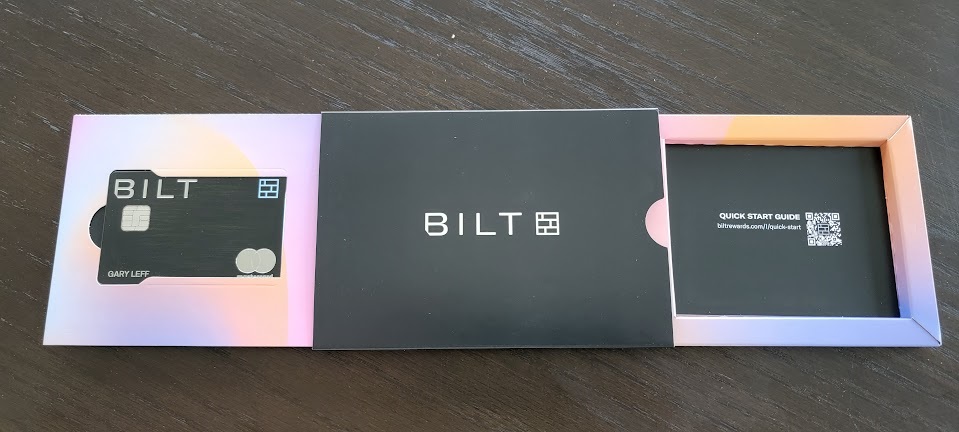Bilt is reportedly raising money at a $10 billion valuation. They last raised in August 2024 at $3.25 billion. For context, five years ago American Airlines AAdvantage was appraised at $18 to $30 billion.

Last June the Wall Street Journal reported that Bilt’s co-brand credit card partner Wells Fargo was losing $10 million a month on the card, and several observers mistakenly suggested that this meant Bilt wasn’t ‘working’. It missed important context.
- While internal Wells modeling may have suggested more non-rent payments and greater revolve, they knew what they were getting when they did the deal – it was part of an early push into co-brand. They were acquiring high value younger customers, and launching into the co-brand space, which meant paying more than competitors would have been willing to invest.
- Wells was also an early investor in Bilt, and is likely up significantly overall.
- Bilt had a long-term contract. While co-brand cards need to work for both sides, there was plenty of runway to adjust. And led by former Amex CEO Ken Chennault, they were in a strong position to do that.

I don’t know have specifics beyond what’s being reported on Bilt’s upcoming valuation. But what’s important here is something that I think is broadly missed in discussion of Bilt and also about several recent efforts at standalone loyalty programs that aren’t part of travel companies.
- It’s tough to start a loyalty program. You need to reach a large pool of customers. Airlines already have those customers, they’re captive on an airplane, and they love travel. Airline customers also skew high income. Banks want to reach these customers, and pay a lot to do so!
- What do you do if you’re a loyalty program without customers? RoveMiles is trying to interest customers by offering bigger rebates than competitors. That’s a tough game! What Bilt figured out was how to reach high value customers (young urban professionals, where they live) and offering a unique value proposition (no one else had rewarded paying rent, the biggest expense most people have).
- Bilt has taken this and turned it into a coalition loyalty program. It’s interesting that the former CEO of Amex is their Chairman – even Amex failed in its attempt to build a coalition program (Plenti). But Bilt has customers (they process rent in most of the buildings from major corporate apartment owners) and a valuable currency, they reach people in their homes, and can incentivize transactions with Walgreens, Lyft, neighborhood restaurants and a growing stable of partners. Bilt’s currency and tools can be used to target customers with points and better experiences.
None of this is a guarantee of future success, or avoiding bumps along the way. Bilt rolled out rewards for paying rent with any credit card, and then scaled back those rewards mere weeks later. We still haven’t seen their new co-brand card value proposition, or what rewards for paying mortgages will look like.
Four years ago I wrote that Bilt had a really innovative take in how to solve ‘the distribution problem’ and increasingly it seems right that this is their unique advantage, and it’s allowing them to build a large customer base motivated by their rewards, which is of tremendous value to partners.
In the meantime, for customers there’s a tremendous amount of value. As a Bilt Platinum I’ve enjoyed bigger points transfer bonuses than any other program has offered – ever – along with status from Air France KLM Flying Blue, free BLADE helicopter transfers, and a ton more.

Skeptics of the program have little reason not to participate. If you think they’re providing too much value to be sustainable, that would seem to be an even stronger reason to go all-in with the program (to benefit from the excess value they’re delivering).
(HT: Jonathan)


Any time someone dwells on Wells losing $120 million a year, I feel the need to point out that was .6% of Wells net income. It’s rounding error.
” rewarded paying rent, the biggest expense most people have)”
No. It is the smallest for most people. Only 33% of households rent.
And Chenault, far from being some visionary in the credit cards space, presided over the debasement of AMEX, making the slogan “Membership has its privileges” an empty slogan.
No program is perfect, but I’m pleased with BILT overall; depending on what they do next, ideally a 1.5x Everything, no annual fee card, I may be spending more with them, especially since Chase just blew up the CSR’s 3x Travel (soon to be 1x in October). Other than Chase, BILT has some of the best variety of transfer partners. Sure, I miss the easy 250 points from trivia, but whatever. Happy for Ankur. He’s kickin’ booty!
Is anyone here willing to accumulate Bilt points in the same way as s/he accumulates AmEx/Chase/Citi points, and holds them for years? I bet there’s no one.
Maybe I am looking at this wrong, but if they are still doing capital raises, no matter the valuation, wouldn’t that suggest that they are still burning through cash. Is there a point at which they start making money, or is this just a $10,000,000,000 Ponzi scheme?
I recently closed my Bilt Rewards card. The hassle does not outweigh the meager benefits. Getting actual rent payments set up and processed is a pain, customer service is crap, and the app is loaded with bugs.
Sorry, not worth my time.
@farnorthtrader: Capital raising via equity rounds because their equity is a strong currency. Proceeds are not necessariy to cover losses. May fund expansion.
@L3,, absolutely possible if you are manufacturing something, or opening storefronts, but this is a pretty straightforward business that should scale pretty inexpensively. Their largest cash uses are going to be actual expenses for points/redemptions, not capital intensive or labor intensive at all
The value they are extracting is that they process payments for the big rental landlords.
The rewards program remains a hyped up front to justify the fees they’re getting from the landlords. Let’s see when they catch on.
I so wish it was available to us Australians.
We miss out on so many easy points and miles earning opportunities and with our current terrible currency exchange rates it isn’t even a good time to buy miles presently.
Dale.
Been a BILT user for a while. Its turned out to be one of my favorite cards to own and use. Great transfer partners that are constantly being added to, good multipliers on spend. I think one of the ways they get people roped in is there contest on the first. People like immediate, medium and long term rewards to keep them happy…look to Vegas slot machines for that actually. Bilt achieves most of this or as much as a creditor can.
My only compliant is the app is somewhat cluttered and Wells Fargo is pretty cheap on the credit line increases. The problem with doing that is paying rent/mortgage on it is a mighty wallop on credit utilization.
Bilt is cash flow positive. The capital raise is to fund expansion. The naysayers have a chip on their shoulders and have been wrong.
While Bilt’s contract with Wells Fargo ends in 2029, the players will know what’s what about a year prior. The players in such contracts need lead time should the other party want to not renew. So, there’s typically a provision that X months prior, the parties must express their intention to renew or not renew. Given what we know thus far, I’d said Bilt is already developing alternatives and will have Plan B in place by that notice date. And, because Bilt Rewards is a stand-alone program, it can readily bolt onto another issuer of credit in the same way that it moved from Evolve to Wells.
LOL the Bilt shills or execs posting are here
“cash positive” on the back of a bank partner losing money on the deal expiring in 2029
A touch less hype and more pragmatism would make it more credible and value enhancing
No one with even vague wealth or sophistication rents.
The end.
Bilt is stupid and DOA, has been since day one